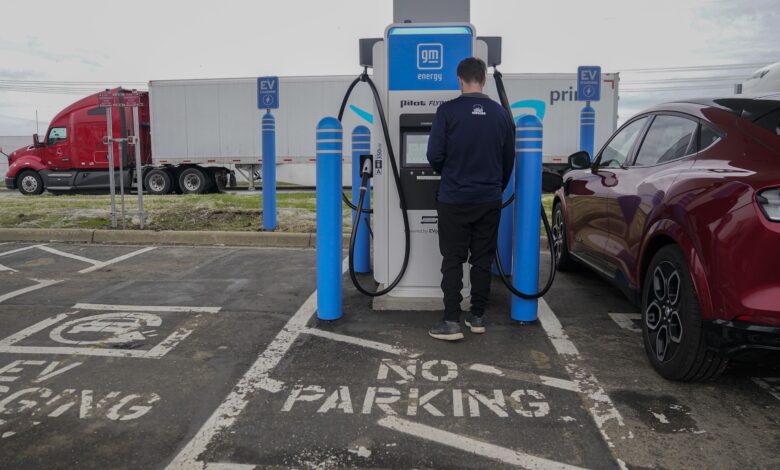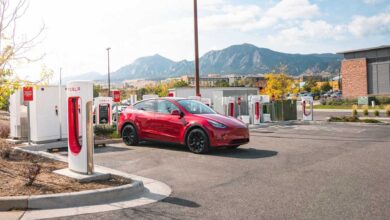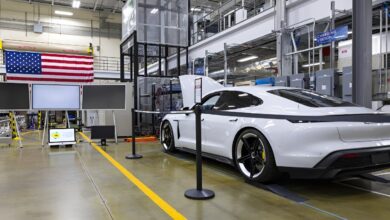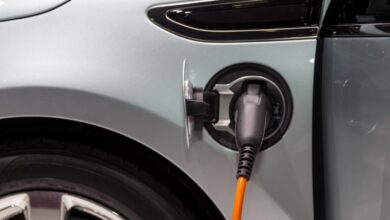Biden eases final fuel economy standards in light of slower electric vehicle adoption

The Biden administration on Friday finalized new fuel economy standards for SUVs and trucks, easing off its initial proposals to better reflect the state of U.S. auto sales and the slower-than-expected pace of electric vehicle adoption.
The final rule, published by the Department of Transportation’s National Highway Traffic Safety Administration, requires all light-duty vehicles to average 50.4 miles per gallon by 2031 — slightly less stringent than its 55.7 mpg target proposed last year.
Light-duty vehicles currently average around 39.1 miles per gallon, meaning the new requirements amount to an annual increase of roughly 2% per year.
SUVs and pickup trucks will also not be required to increase their fuel economy standards between model years 2027 and 2028.
Instead, the vehicles must begin implementing a 2% annual reduction between 2029 and 2031, reaching an average of 45 mpg, compared to the earlier proposed 52 mpg fuel economy target.
SUVs and pickups currently average around 35 miles per gallon.
Biden officials said Friday that the pared-down target will give automakers more runway to build out electric vehicles and electric trucks without incurring the hefty compliance fees and penalties they would have been hit with under the draft rule.
They also touted the new rule’s cost-saving measures, projecting that the updated standards will save car owners more than $600 in gas costs over the lifetime of their vehicles.
“Not only will these new standards save Americans money at the pump every time they fill up, they will also decrease harmful pollution and make America less reliant on foreign oil,” Transportation Secretary Pete Buttigieg said Friday.
NHTSA officials had estimated last year that the proposed fuel economy standards would have cost the automotive industry a projected $14 billion in fines through 2032 if finalized — which could have proved to be highly damaging to automakers as they look to build and deliver a wider range of electric vehicles.
CLICK HERE TO READ MORE FROM THE WASHINGTON EXAMINER
The move was praised by the head of the Alliance for Automotive Innovation, a trade group that represents nearly all of the largest U.S. automakers, for setting a more reasonable time frame for automakers.
“Those fines wouldn’t have produced any environmental benefits or additional fuel economy and would’ve foolishly diverted automaker capital away from the massive investments required by the electric vehicle transition,” AAI President John Bozzella said in response to the news.



